#black maternal health
Text
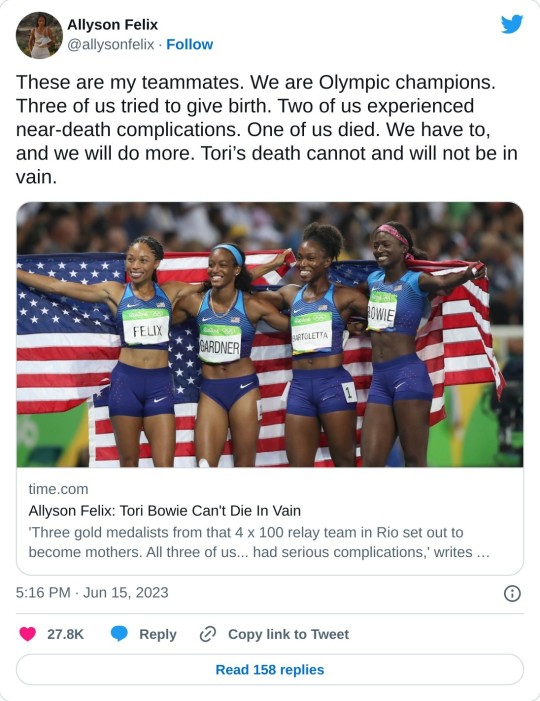
My former U.S. Track and Field teammate Tori Bowie, who was found dead in her home in Florida on May 2, of complications related to childbirth at 8 months pregnant, was a beautiful runner. She was effortless. At the Rio Olympics, I ran the second leg of the 4 x 100 relay. Tori was the anchor. When she got the baton, I remember thinking, “it’s over.” She just accelerated. When she crossed the finish line, I couldn’t wait to run over to her to celebrate. It was her first, and only, Olympic gold medal.
She also picked up a silver (in the 100-m) and bronze (200-m) in Brazil. The next year, at the 2017 World Championships in London, Tori won the 100-m title, earning the title of “world’s fastest woman.” Tori started out as a long jumper. So seeing her thrive as a sprinter was a huge deal. She was just such a bright light, and people were getting to see that.
Tori grew up in Mississippi and had this huge Southern accent. She didn’t take herself too seriously. You felt this sense of ease when you were around her. I last saw her in early 2021, in San Diego, where she was training. She gave me the biggest hug; something about her spirit was just very, very sweet. I felt her sweetness come over me that day.
Tori was 32 when she died. According to the autopsy, possible complications contributing to Bowie’s death included respiratory distress and eclampsia—seizures brought on by preeclampsia, a high blood pressure disorder that can occur during pregnancy. I developed preeclampsia during my pregnancy with my daughter Camryn, who was born in November 2018. The doctors sent me to the hospital, where I would deliver Camryn during an emergency C-section, at 32 weeks. I was unsure if I was going to make it. If I was ever going to hold my precious daughter.
Like so many Black women, I was unaware of the risks I faced while pregnant. According to the CDC, in 2021 the maternal mortality rate for Black women was 2.6 times the rate for white women. About five days before I gave birth to Camryn, I was having Thanksgiving dinner with my family. I mentioned that my feet were swollen. As we went around the table, the women shared their experiences during pregnancy. My cousin said she also had swollen feet. My mom didn’t. Not once did someone say, ‘oh, well, that’s one of the indicators of preeclampsia.’ None of us knew. When I became pregnant, my doctor didn’t sit me down and tell me, ‘these are things that you should look for in your pregnancy, because you are at a greater risk to experience these complications.’
That needs to change, now, especially in light of Tori’s tragic passing. Awareness is huge. Serena Williams had near-death complications during her pregnancy. Beyoncé developed preeclampsia. I hate that it takes Tori’s situation to put this back on the map and to get people to pay attention to it. But oftentimes, we need that wake-up call.
The medical community must do its part. There are so many stories of women dying who haven’t been heard. Doctors really need to hear the pain of Black women.
Luckily, there’s hope on several fronts. Congress has introduced the Momnibus Act, a package of 13 bills crafted to eliminate racial disparities in maternal health and improve outcomes across the board. California passed Momnibus legislation back in 2021. These laws make critical investments in areas like housing, nutrition, and transportation for underserved communities. Further, several pharmaceutical companies are making advances on early detection and treatment of preeclampsia.
Three gold medalists from that 4 x 100 relay team in Rio set out to become mothers. All three of us—all Black women—had serious complications. Tianna Madison has shared that she went into labor at 26 weeks and entered the hospital “with my medical advance directive AND my will.” Tori passed away. We’re dealing with a Black Maternal Health crisis. Here you have three Olympic champions, and we’re still at risk.
I would love to have another child. That’s something that I know for sure. But will I be here to raise that child? That’s a very real concern. And that’s a terrifying thing. This is America, in 2023, and Black women are dying while giving birth. It’s absurd.
I’m hopeful that things can get better. I’m hopeful that Tori, who stood on the podium at Rio, gold around her neck and sweetness in her soul, won’t die in vain.
—as told to Sean Gregory
#Tori Bowie#Black Lives Matter#Black Mothers Health#Black Maternal Health#Allyson Felix: Tori Bowie Can't Die In Vain#Black Lives of Children Matter#Black Health Matters
10K notes
·
View notes
Text

#black parenting#black art#black birth#black pregnancy#black man#black fatherhood#black fathers#black love#black babies#black power#black maternal health#blackfamilygoals#blacklivesmatter#black tumblr
606 notes
·
View notes
Text

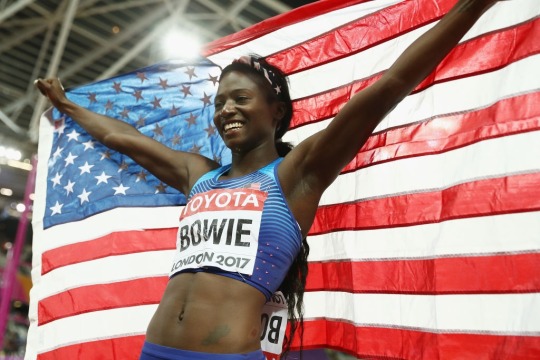
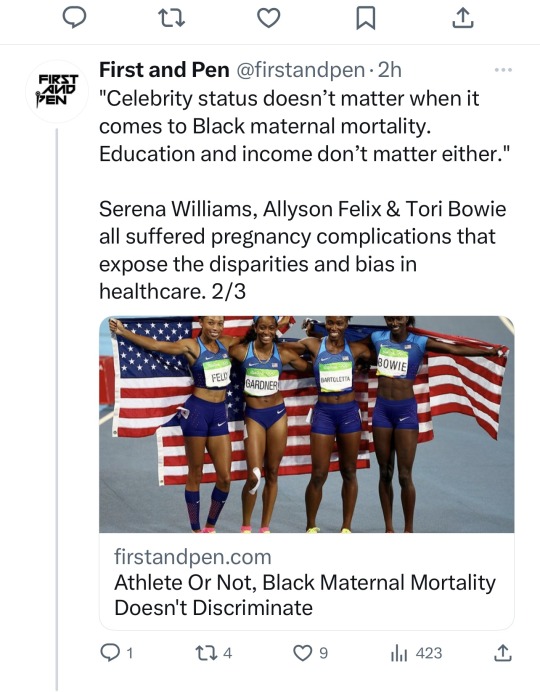

Rest In Peace, Tori Bowie
While some vehemently deny that structural racism exists and that even individual doctors hold internal biases against Black women, maternal mortality rates do not lie.
👉🏿 https://firstandpen.com/torie-bowie-serena-williams-allyson-felix-pregnancy-black-maternal-health-mortality/
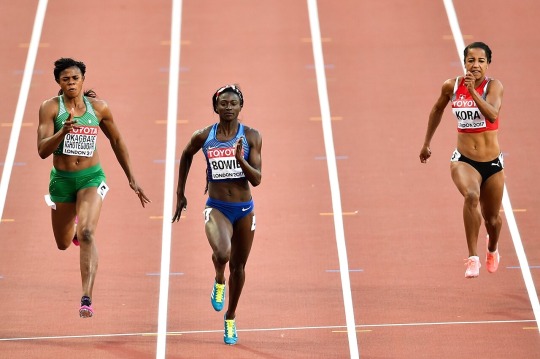
Even though 60% of all childbirth-related deaths in the US are preventable, the "[racial] disparities around maternal health are not improved by access to insurance, access to education," according to double board-certified neonatologist and pediatrician Dr. Terri Maior-Kincade.
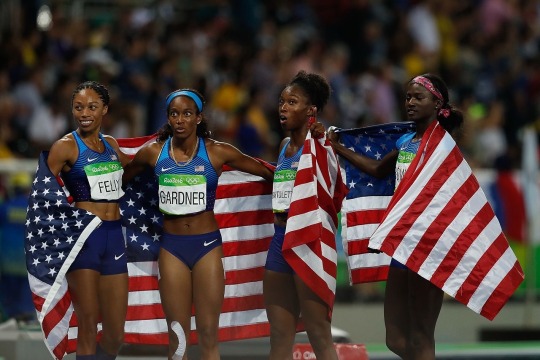
"Having a higher socio-economic status for Black women is not protective," Major-Kincade told Insider. "These disparities are related to systemic issues, and they're not going to get better until we provide equitable care. So we have to improve the way we deliver care to Black women so that we can have the full joy of pregnancy."
👉🏿 https://www.insider.com/allyson-felix-near-death-pregnancy-issues-black-moms-face-2022-6
#politics#tori bowie#structural racism#medical racism#blacklivesmatter#black maternal health#infant mortality#maternal deaths#maternal death rate#reproductive rights#healtcare#reproductive justice#maternal mortality#maternal mortality rate
294 notes
·
View notes
Text
Imagine how many people JUST LIKE HER are in ICU, TRAUMA, BIRTH AND DELIVERY, NICU, STEP-DOWN UNITS, PYSCH WARDS, ELDERLY CARE, OBGYN, CARDIOLOGY, POST OP CARE, etc…

#indiana state university#protest#racism#hate speech#campus activism#cowboy carter#beyoncé#country music#yik yak#student activism#campus response#discrimination#protest demands#campus culture#university response#social media#campus newspaper#diversity#inclusion#racial discrimination#Code of Conduct#university administration#health care disparities#Black maternal health#structural racism#health care professionals#systemic inequities
56 notes
·
View notes
Photo
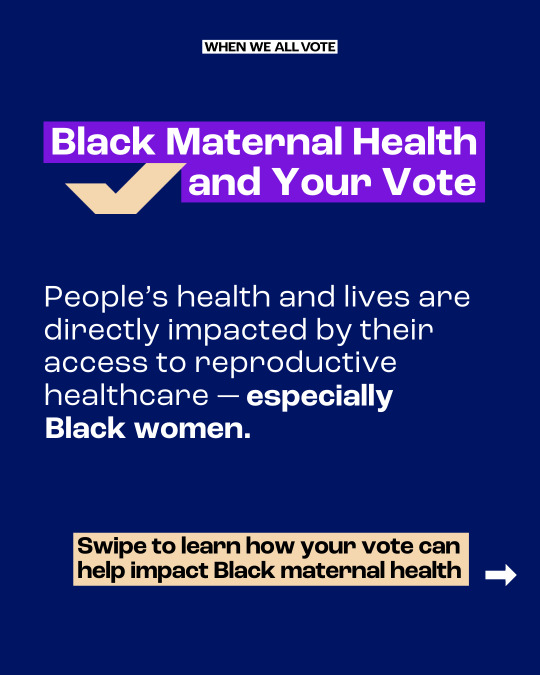
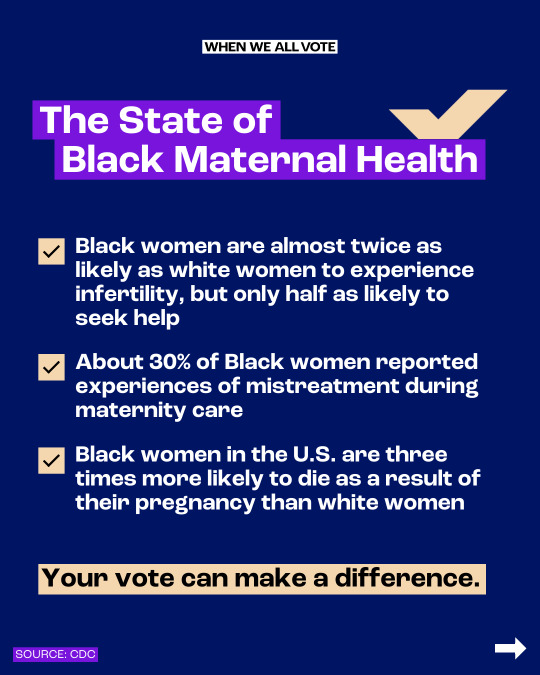

This Black Maternal Health Week, we’re bringing awareness to the staggering rates of Black maternal mortality and morbidity across the country.
Black mothers deserve access to the healthcare they need throughout pregnancy, childbirth, and postpartum.
The people we elect make decisions that impact our access to reproductive healthcare. Make sure you are registered to vote NOW at weall.vote/register. 💜
#black maternal health week#black maternal health#black women#black moms#black mothers#black health#reproductive health#reproductive justice#reproductive freedom#vote#voting#voter#register to vote#ballot#election#elections#black lives matter#blm
16 notes
·
View notes
Text
Louisiana Senator Bill Cassidy: Our Maternal Death Rates Are Only Bad If You Count Black Women
"As conservatives across the country wage war on reproductive rights, demanding by law that women be forced to carry any pregnancy to term, regardless of the circumstances, they frequently (slash always) like to forget that they do absolutely nothing to support these people during said pregnancies or after. Mississippi, for example, where abortion will immediately become illegal if Roe v. Wade is overturned, has the highest rate of child poverty in the country and recently rejected a bid to extend postpartum Medicaid coverage. And in Louisiana, which has a similar trigger law that will go into effect upon Roe being reversed, maternal mortality rates are among the worst in the nation. But according to GOP senator Bill Cassidy, the rate at which women die during pregnancy or shortly after is not as bad as it seems—if you subtract the deaths of Black women, which apparently don’t count.
In an interview with Politico, the following words came out of Cassidy’s mouth: “About a third of our population is African American; African Americans have a higher incidence of maternal mortality. So, if you correct our population for race, we’re not as much of an outlier as it’d otherwise appear. Now, I say that not to minimize the issue but to focus the issue as to where it would be. For whatever reason, people of color have a higher incidence of maternal mortality.”
There’s a lot to unpack here. Let’s start with the idea that Cassidy—who wants to defund Planned Parenthood is all, Yes, on its face, our maternal mortality rates are abysmal, but if you only count white women, they’re not that bad! Then there’s the phrase “for whatever reason.” In fact, there is one very big reason in particular— perhaps you can take a guess? “It’s no mystery why maternal mortality rates are so high among Black women,” Michelle Williams, the dean of Harvard’s School of Public Health said in response. “They are high because of the devastating impacts of structural racism and individual bias.” As Politico notes, Black mothers are three times more likely to die from a pregnancy-related cause than white mothers in the U.S., which has the worst mortality rate among developed nations and where “17 mothers die for every 100,000 pregnancies in the country.” In Louisiana, Black mothers are four times as likely to die than white mothers.
Asked what how Roe v. Wade being overturned would affect maternal mortality rates, Cassidy dismissed the question. “If we’re using abortion to limit maternal deaths, that’s kind of an odd way to approach the problem,” he said. That, of course, is total bullshit. As NBC News reported earlier this month, “Research suggests the bans and restrictions would have manifold effects on maternal health. For one, if more pregnant people can’t get the abortions they seek, they’d shoulder the risk of the U.S.’s relatively high—and rising—rate of death from pregnancy-related causes, which is particularly elevated among people of color.” As Dr. Amy Addante, an ob-gyn in Illinois, bluntly put it: “There are going to be women that will die from pregnancy because of this decision, period.”
#black maternal health#black maternal deaths#black women#Louisiana state senator#Bill Cassidy#roe vs. wade#racisim#maternial death rates
532 notes
·
View notes
Text
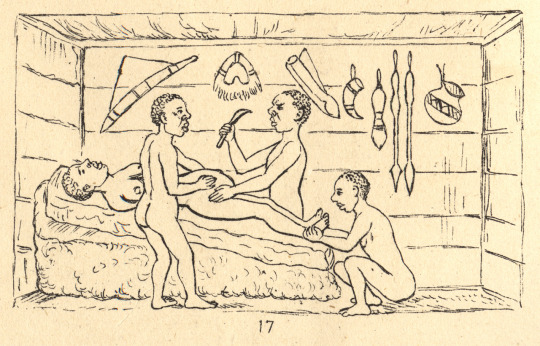
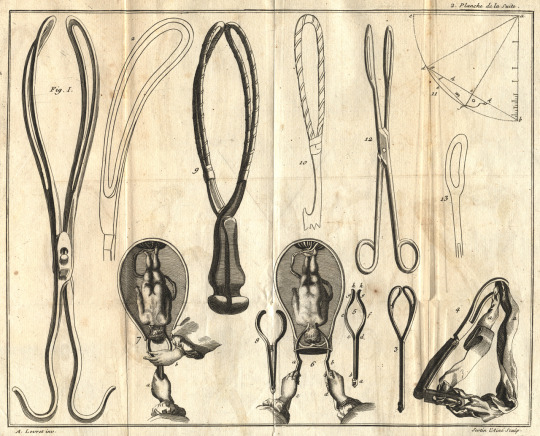
Caesarean section was considered a life-threatening procedure in England that was only to be undertaken in the direst of circumstances and facing the decision on whether to save the life of the mother or baby.
The first successful C-section done in Africa ("success" defined as both surviving) is usually credited to Irish surgeon James Barry (Margaret Ann Bulkley), who performed the operation in Cape Town, South Africa.
This may well not be true due to the quality of surgical techniques in present-day Uganda. Ugandans performed non-fatal C-sections without anesthesia but with supply of banana wine as discovered by a missionary.
In 1879, medical missionary Robert Felkin was visiting indigenous people in the Kingdom of Bunyoro. He later published his observations of obstetric care, which included an account of a C-section that he was permitted to witness.
He had a chance to observe a Caesarian section being performed on a young woman. He observed that in Uganda, C-sections were performed with the intention of saving both the mother and the baby, unlike in Europe where maternal mortality was high.
In the Ugandan c-section, there were three men; one was holding a knife, the other was holding unto the ankles of the young woman and the third stood above her abdomen, supporting either sides with his hands in the course of the surgical procedure.
The surgeon who wielded the knife foremost washed his hands, surgical instruments and the abdomen of the young woman with banana wine for sterilization purposes.
She was given some banana wine to drink in order to make her less sensitive to the surgeon's blades.
The surgeon started the C-section by reciting an incantation.
After the ceremonial prayer, he proceeded with the operation.
In Europe, the concept of surgeons sterilizing their hands before the c-section was very new, and only just starting to catch on. Ultimately, it prevented a lot of deaths once they started doing it.
The Ugandans had mastered the procedure long before there was any interaction with Europeans, as well as with explorers, missionaries and plunderers from other parts of the world, who came to steal and enslave.
•••
Los británicos consideraban que las cesáreas eran procedimientos que ponían en riesgo la vida y que solo tenían que ser realizadas en las peores de las circunstancias y enfrentándose a la decisión de salvar a la madre o al bebé.
La primera cesárea exitosa fue realizada en África (“exitosa” debido a que ambos sobrevivieron) y usualmente se le acredita al cirujano irlandés James Barry (Margaret Ann Bulkley), quién realizó la operación en Ciudad del Cabo, Sudáfrica.
Esto puede que no sea cierto debido a la calidad de las técnicas quirúrgicas de la Uganda actual. Los ugandeses realizaban cesáreas no fatales sin anestesia pero administrando vino hecho de bananas, como fue descubierto por un misionero.
En 1879, un misionero médico llamado Robert Felkin, andaba visitando a la población indígena del Reino de Bunyoro. Luego de eso, público sus observaciones en cuanto a los cuidados obstétricos y esto incluía los acontecimientos de una cesárea que le habían permitido presenciar.
Él tuvo la oportunidad de observar cómo se practicaba una cesárea en una mujer joven. Observó que en Uganda, las cesáreas eran realizadas con la intención de salvar a ambos, madre y bebé, a diferencia de Europa dónde la tasa de mortalidad materna era alta.
En la cesárea ugandesa, habían tres hombres: uno sosteniendo la cuchilla, el otro sosteniendo los tobillos de la mujer y el otro se paraba cerca del abdomen para brindar soporte con los manos hacia cualquiera de los dos lados, durante el curso del procedimiento quirúrgico.
El cirujano que portaba la cuchilla lavaba tanto sus manos, como los instrumentos quirúrgicos y el abdomen de la mujer con vino de banana por propósitos de esterilización.
Se le daba de beber algo de vino hecho de bananas para hacerla menos sensible a las cuchillas del cirujano.
El cirujano comenzaba la cesárea recitando un conjuro.
Después del rezo ceremonial, procedía a realizar la operación.
En Europa, el concepto de que los cirujanos se esterilizaran las manos antes de una cesárea era algo demasiado nuevo y venían dándose cuenta. Al final, una vez que comenzaron a hacerlo, se evitaron muchas muertes.
Los ugandeses habían dominado el procedimiento mucho antes de que tuvieran algún tipo de interacción con los Europeos, así como también con los exploradores, misioneros y saqueadores de otras partes del mundo, quienes llegaron a robar y esclavizar.
#blacklivesmatter#blacklivesalwaysmatter#english#spanish#blackhistory#history#share#read#blackpeoplematter#blackhistorymonth#c section#maternity#maternalmentalhealth#black maternal health#maternal deaths#black mothers#mothers#motherhood#uganda#knowledgeisfree#knowledge#black history#historyfacts#african history#medicine#knowyourhistory#like#follow#blackhistoryyear#black excellence
57 notes
·
View notes
Text
Ok but joking aside I always get to a point where I get terrified. Not because labor hurts (and it does, like an absolute bitch) but because it’s 2023 and Black women are still dying from medical neglect and abuse in childcare. The black maternal mortality rate is too damn high. And I’m now reminded how 9 months ago my birth with 🐞 could have easily gone wrong if I didn’t have a super protective and vocal husband who used his privilege to advocate for me and her.
Like yeah I’m not looking forward to the seemingly never ending contractions that make your abdomen feel like it’s being ripped apart. But mostly I’m terrified I won’t make it back home from the hospital to my children.
I should be having normal “I don’t want to go through the ring off for again” apprehensions, not “I don’t want my medical team to be so racially biased and uninformed that something horrible happens” apprehensions.
#this is the type of anxiety I need Ativan for#but I can’t take that because I’m pregnant#black mamas matter#black maternal health
51 notes
·
View notes
Text
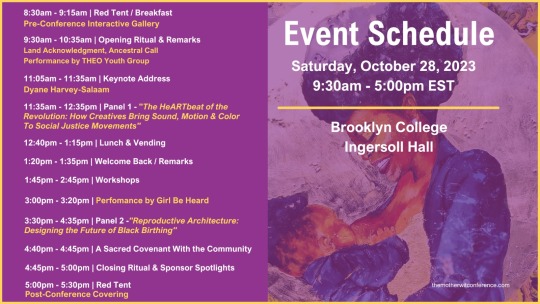
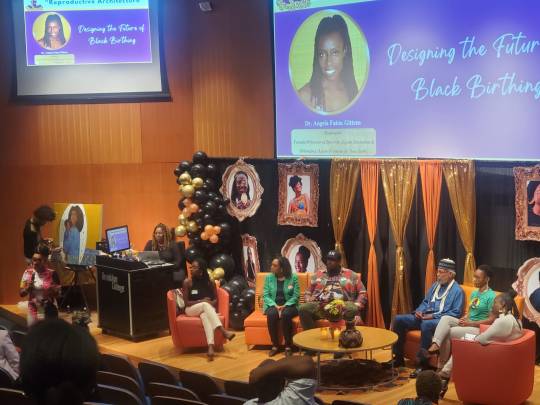
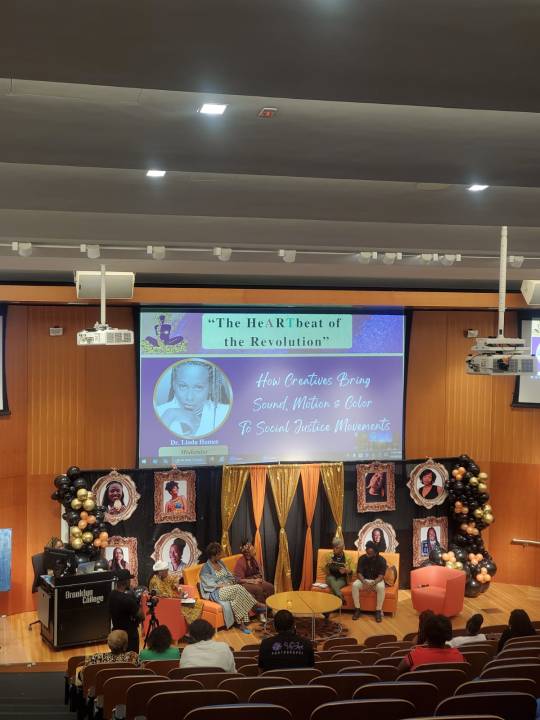
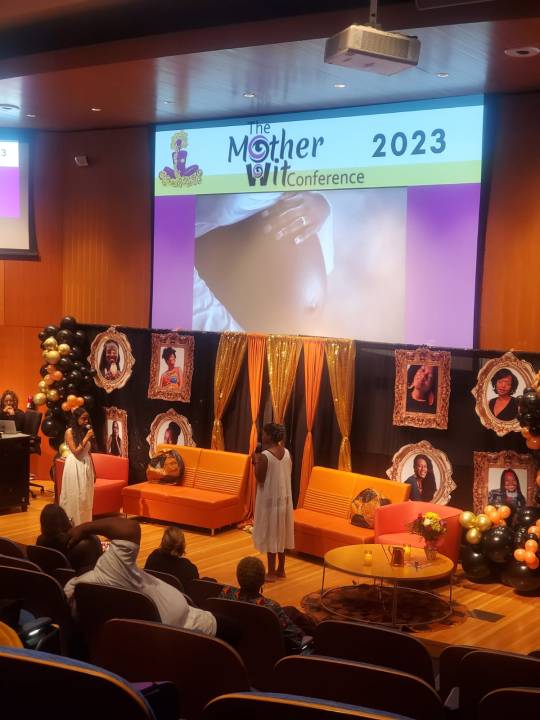
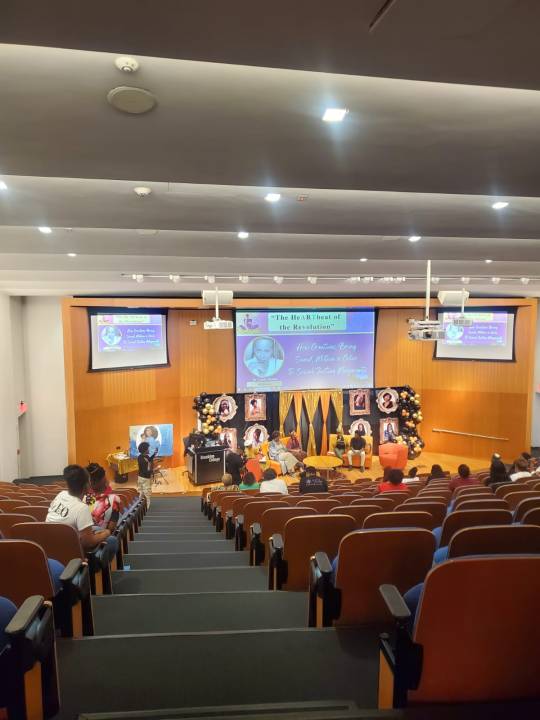
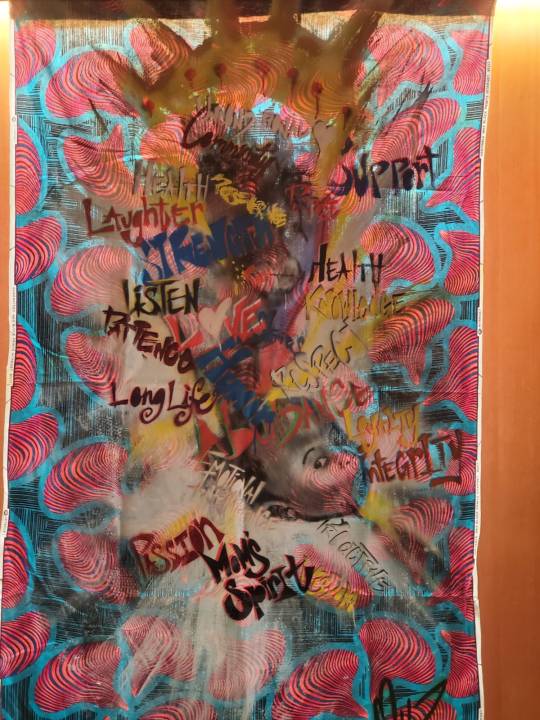
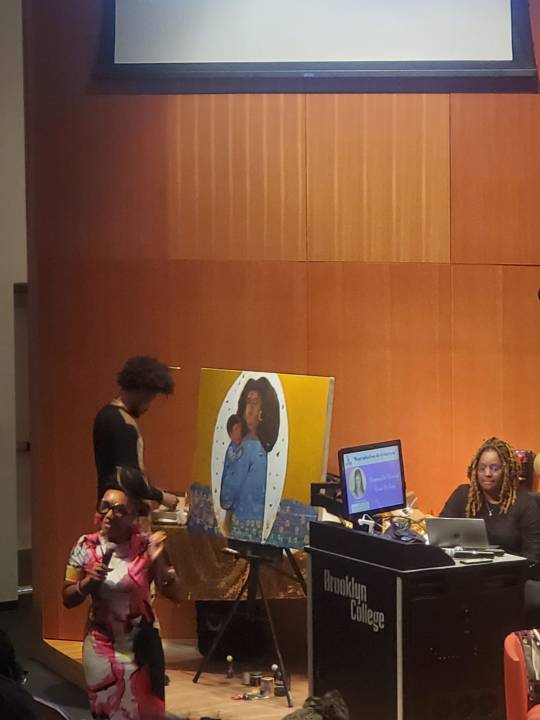
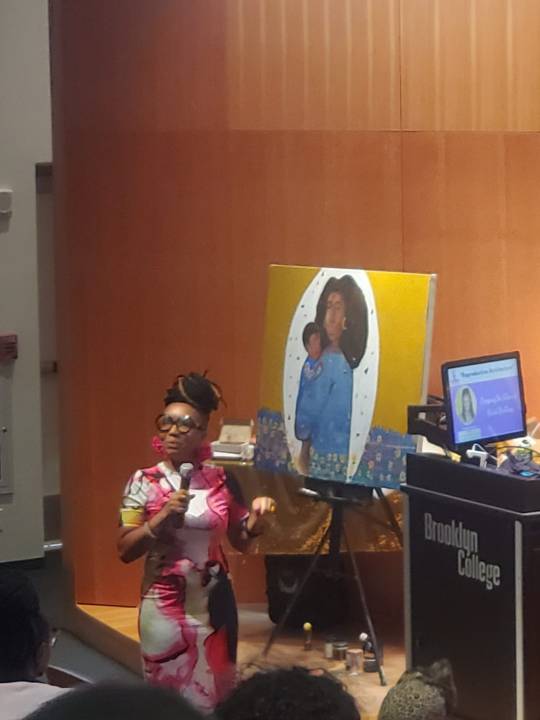
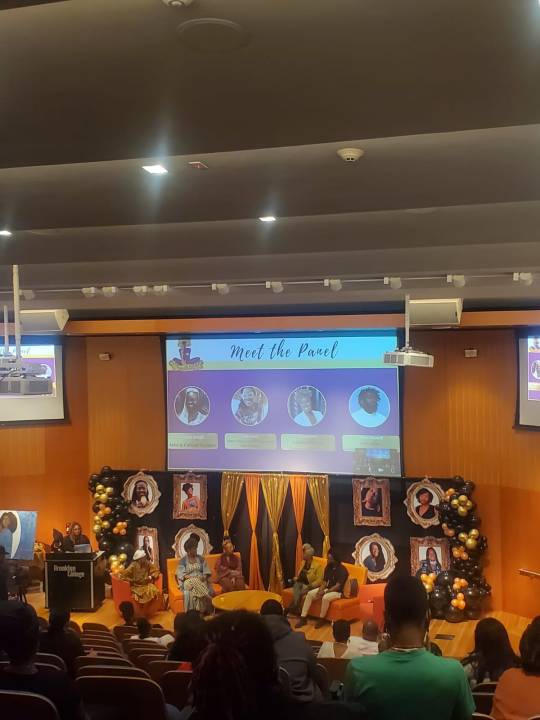
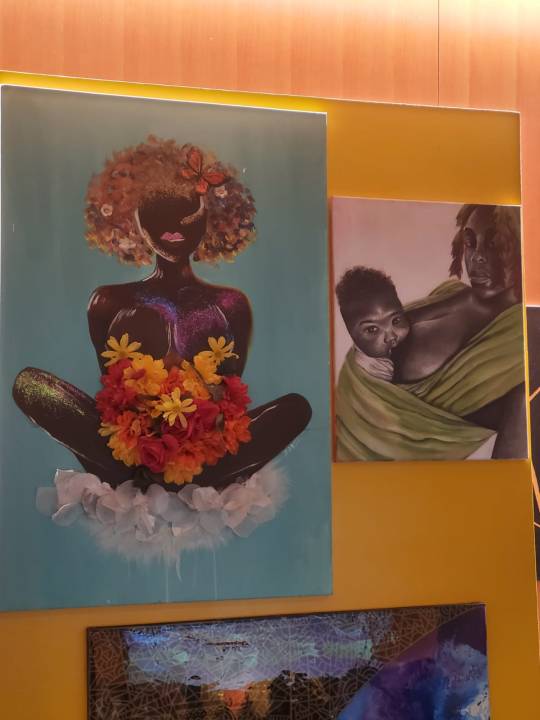
#mother wit conference#the Ariah Foundation#spirit of A Woman#black woman#black men#black family#black maternal health#black fetal health
4 notes
·
View notes
Text
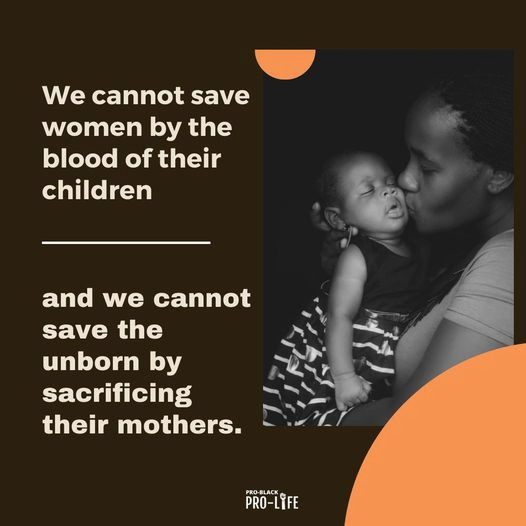
[ID: a graphic with a brown background that contains text and a photo. The photo shows a Black mother kissing her sleeping baby. The text reads: “We cannot save women by the blood of their children, and we cannot save the unborn by sacrificing their mothers.”]
From Pro-Black Pro-Life on Facebook
46 notes
·
View notes
Text
THE MOTHER WIT CONFERENCE - HOME
3 notes
·
View notes
Text
2 notes
·
View notes
Text
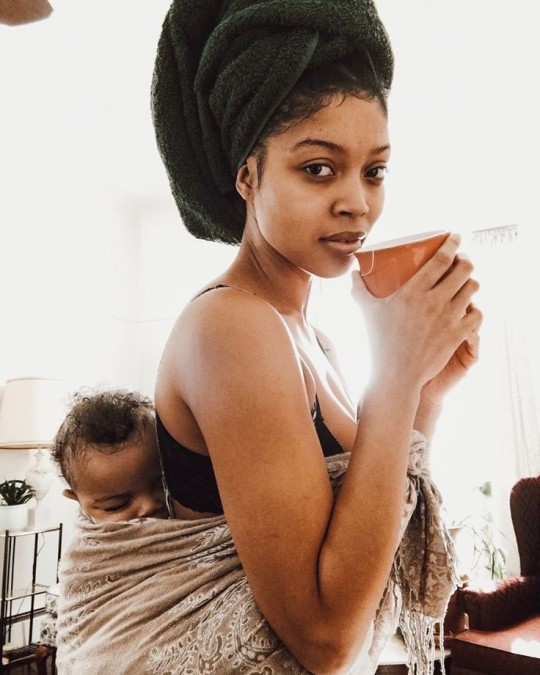
#black parenting#black women#black art#black birth#black mothers#black pregnancy#black girl magic#black man#black love#black motherhood#black maternal health#black mamas matter#black maternal health week#black femininity#black feminism#black lives are precious#black lives are important#BMSC
61 notes
·
View notes
Text
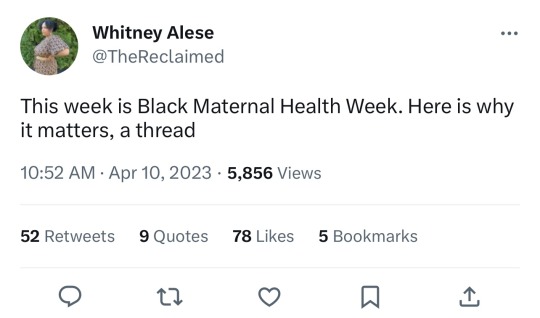



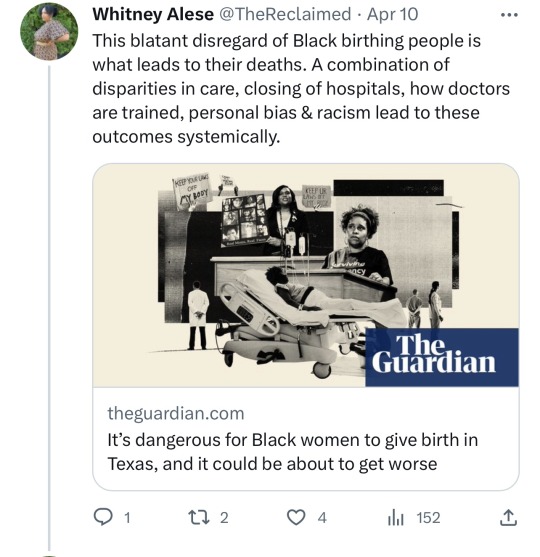
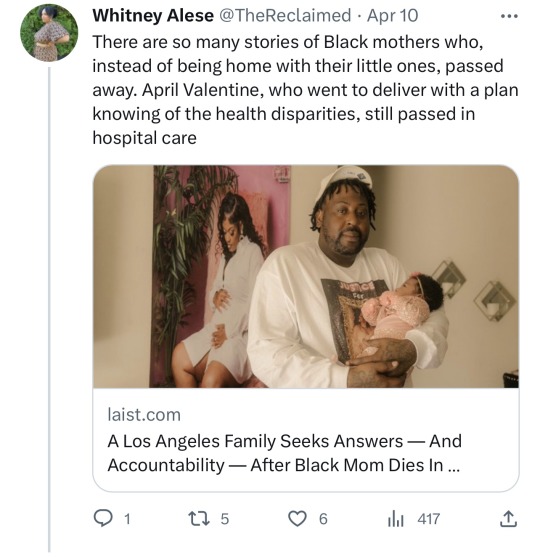

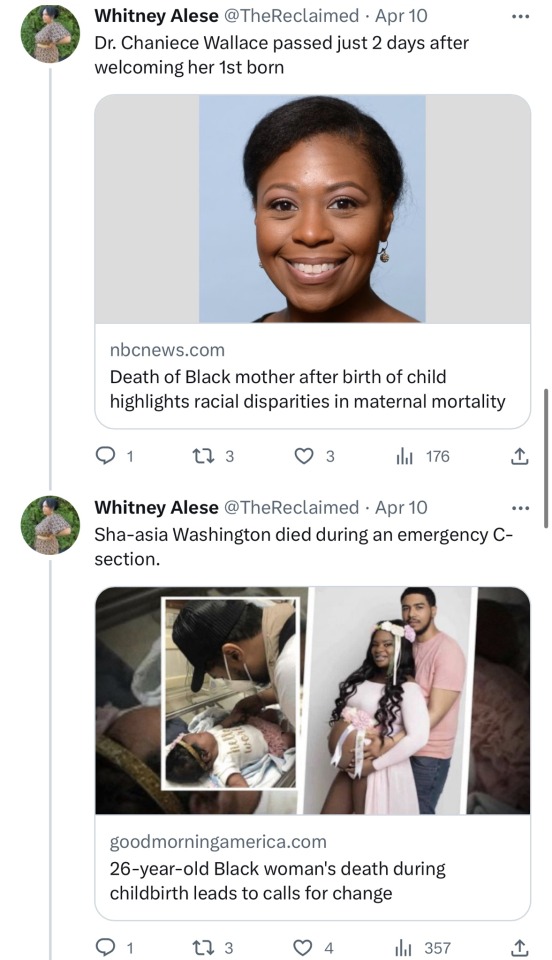

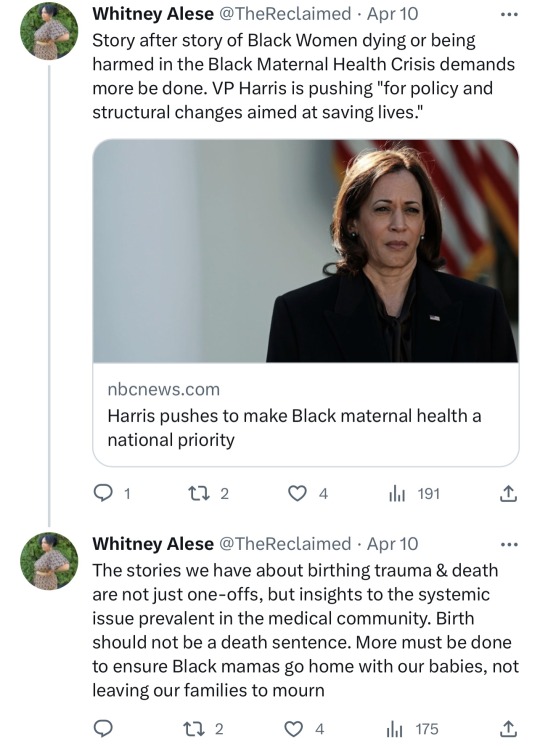
Links:
• https://www.npr.org/sections/health-shots/2023/03/16/1163786037/maternal-deaths-in-the-u-s-spiked-in-2021-cdc-reports
• https://www.vanityfair.com/news/2022/05/bill-cassidy-maternal-mortality-rates
• https://amp.theguardian.com/global-development/2023/mar/17/texas-black-women-maternal-healthcare-crisis-medicaid
• https://laist.com/news/health/april-valentine-childbirth-death-centinela-hospital-los-angeles-black-maternal-mortality-investigation
• https://people.com/health/tk-dad-raising-sons-alone-after-wife-dies-in-childbirth/
• https://www.nbcnews.com/news/amp/ncna1246841
• https://www.goodmorningamerica.com/amp/wellness/story/calls-change-26-year-black-woman-dies-childbirth-71698417
• https://www.goodmorningamerica.com/wellness/story/calls-change-26-year-black-woman-dies-childbirth-71698417
• https://www.wsj.com/articles/black-mothers-in-new-york-are-more-likely-to-have-life-threatening-complications-in-childbirth-11597268700
• https://www.nbcnews.com/news/nbcblk/harris-pushes-make-black-maternal-health-national-priority-rcna24630
#politics#black maternal health week#blacklivesmatter#medical racism#black maternal health#black maternity#racial bias#racism#black infant mortality rate#two americas
166 notes
·
View notes
Text
"Sometimes our best way forward through creativity is also connected to the work concerning the issues of the community." Nherie
I share 4 ways I connect creatively with activism 💗
#activisim#momsrising#community#humanity#community engagement#food shortage 2022#food insecurity#mental health tips#mental health#healthcare#maternal health#blackwomen#black maternal health
6 notes
·
View notes
Text
Black Maternal Health Week was earlier this month, a month that the US recognizes as Minority Health Month. I however was too afraid to share my thoughts that week, but here they are now.
I’ve been thinking about Black maternal health since I was in my low 20s… my own possible maternal health and that of my Black and Brown friends and loved ones. But It’s been a…complicated journey for some time. As an artist, a pansexual-bi-queer, sometimes income insecure & not always smooth sailing in the family department, I was thinking about what it would mean if I had a child. I won’t get into the specifics of my I-can-take-it-or-leave-it situational approach. What I really wanted to break my silence on is that harrowing topic of Black maternal health. Because it has shaped how I think about possibility and how hope can be squeezed and cinched to suffocation.
I am no longer a young 20-something. I’m not even a young 30-something. I don’t wake up wondering if I should bring a child into the world, generally speaking. I think about kids, young people, often though. I work with them, I love them, I connect with them in stores, parks, on trains and buses. I love my friends’ children and my nieces. I carry fruit snacks, a juice pack and a small toy in my backpack if I know I’ll be with a kid that day, just in case. I think about parents even more often. All kinds, all over history. I decided a LONG time ago it was (probably?) best if I didn’t bring any of my own into the world for more sociological reasons than capability reasons. But what I didn’t really talk about was how crippled I felt by how many burdens are placed on a Black woman, let alone one planning to give birth. I felt like my fate was sealed. I was silently heartbroken - not that I was possibly too broke, or worried about co-parenting or partnership, or my “fitness” to be a parent. I was heartbroken that it’s so fucking difficult for Black women to bring human life into this world, in this country, after all that we already endure and survive. After all the microaggressions and dismissals we already face in the medical office without expecting. Nevermind that your brown or Black child may be killed dead in the street by the people allegedly here to “protect” the citizens of this place. Can we just get an appointment where we’re not treated both like we’re superhuman and therefore not capable of being in pain and also subhuman not worthy of professional, comprehensive, humane care?
I hesitated to write this, to share this because of the bleak nature. I wake up every day wondering how many young Black women have sealed their own fate, told themselves, don’t even consider it. Stay realistic and stay alive. There are no answers here and there are no wrong ones. I simply share this admission as a love letter to all those women who feel like they can’t even dream and ponder free of that oppression, the very real statistics staring them in the face telling us we die more often bringing human life into this crazy world. (There are many ways we bring life, cultivate life, keeping life ALIVE. Sometimes we are killed slowly for those other ways we birth too.)
And for every glorious Black woman who has dared to do it, whose citizen they birthed is braving this world, these birthers of humans who bring me to tears in their audacity and glory, thank you for slaying me over and over. I am the product of such a woman. And the woman before her. And the woman before her.
I may seem like I’m rambling but there’s an aggressive attack in this country on the bodies of people like us or who can or dare or hope to reproduce, birth. Of all walks of life. Our self-sovereignty, already poked and prodded, is questioned state after state. The right to decide for OURSELVES. This is not about whether I’ve wanted or not wanted kids. This is about feeling like the choice was never really mine. For so many reasons. For anyone else who’s felt that way, who has shaped so much of their early adult life around that oppressive looming threat, I see you. We are still here. We are still self-sovereign. Society lies. Oppression is real. Power dynamics are real. Maternal health or the threat therein is real. But we are realer. Hold yourself. Love yourself. Recognize your life. Your life. Your LIFE. And all it has birthed in more ways than one. 🤎🖤🤎
5 notes
·
View notes